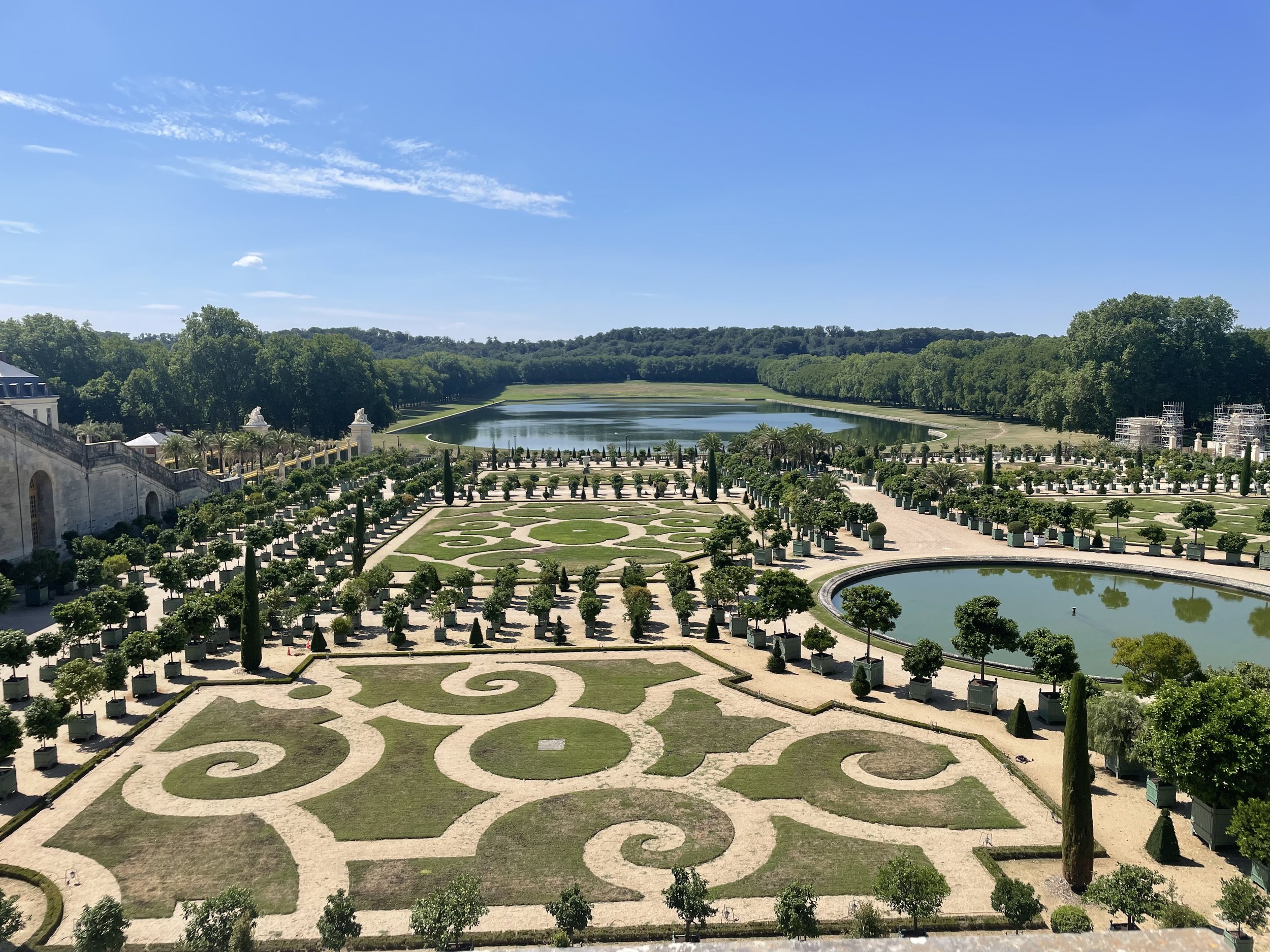Opulence. Luxury. Absolute decadence.
As we continue on our Bookpacking journey I continually find myself almost dumbfounded by the sheer amount of riches that this country of France holds. Of course, this is only the result of its history as a major imperial power. However, outside of that lens, I find myself looking at this from a more insular perspective. This is especially true as we read a Tale of Two Cities and Les Miserables. The dichotomy between the peasant class and the elites in terms of quality of life and wealth is incomprehensible at certain points.
I started to feel hints of this curiosity about the wealth disparity peer through on Thursday as we walked through the Rue St Honoré. We are walking through the streets, I cannot help but marvel at the beauty these buildings hold. They are tall, and exceptionally French, which is synonymous with elegance, simplicity, and grace. As a modern-day tourist, I find myself so eager to know how it was back then. I want to know what life was like two hundred years ago in contrast to the current moment in which I am standing.
Of course, it is impossible for me to truly understand the experience of the common-day people in Paris centuries ago. However, that does not stop me from trying. As a result, I use the novels of a Tale of Two Cities and Les Miserables as literary mediums to help transport me into another world that can help me more effectively attempt to understand the plight of the common day people.
As such, when I am working from the limited and colored perspective of these two novels, I cannot help but feel infuriated on behalf of the common folk. I think of people such as Dr.Mannette, Sydney Carton, Eponine, and Fantine. When I think of these characters I find myself deeply affected by their stories, albeit fictional, and wonder why greed continues to wreak havoc on the most vulnerable.
It was not until I visited the Palace of Versailles that I was both mystified and completely outraged. Of course, the plethora of rooms within the Palace of Versailles was absolutely exquisite! I kept thinking to myself I can’t believe someone lived like this! Wow! Holy Moly! But, in contrast to that, the moment I think about the life struggle of Fantine, I cannot help but think of how evil one must have been to be content living in a palace and land mass so grand it is the size of a small country.
As I reflect on the concept of revolution, while visiting the Palace of Versailles, I envision the peasants who once stormed the palace and killed the king and his family. And I feel vindicated on their behalf. I think it is just and right for them to have done so. And I guess in this way, the spirit of revolution touched me while at Versailles.
But the ghost of revolution would not have been able to reach me had it not been for Les Miserables. I needed that human perspective to help me feel the passion behind the revolution. In a sense, I needed the holy trinity to fully feel revolution. In this, I needed the historical context that I’ve been getting through class discussions and field excursions. I also needed, the stories from the two novels, but particularly, Les Miserables, to allow me to sympathize with the peasant class. Lastly, I needed the lived experience of touring places like the Palace of Versailles in order to invoke the spirit of revolution within me.
How do we define the concept of revolution? Of course, we are all well aware of the traditional concept of revolution that involves grandeur, violence, and sacrifice in hopes of a better future for all to come. But what about the smaller revolutions? What about the intrapersonal ones? The ones that involve a radical reinvention or innovation of one’s self and one’s soul.
For example, Jean Valjean is the main protagonist of Les Miserable he navigates a society on the brink of a revolution until eventually revolting. But if we pay keen attention to his character arch, he seems to go through several striking emotional revolutions himself. His character’s ability to become a man of mercy and morality is perhaps the most obvious one. Bishop Myriel’s kindness to him allows him to embark on this transformative change. But even towards the end of the novel, Jean Valjean is able to undergo another revolution– one of acceptance. We see throughout the novel that his love for Cossette often prevents him from letting her go in search of her own life. Yet, Jean Valjean’s ability to exercise his own volition and allow Marius to marry Cosette speaks bounds about his evolution.
All of this is to say, as I walk through the streets of Paris, I wonder what my own revolution may look like. Walking through the Palace of Versailles has certainly awakened a greater clarity about the dynamics involving wealth and greed that seem to continue to preserve across timelines. But as I continue to search for greatness in Paris, perhaps the greatness I will find will not be in the streets, but rather within myself. I think that would be a wonderful discovery in and of itself.
